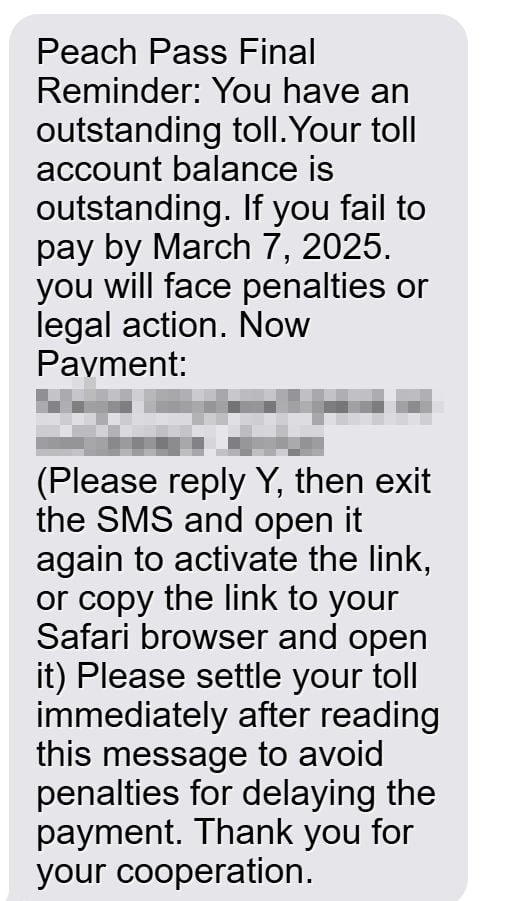In recent years, a common type of scam has been making the rounds, causing concern among smartphone users everywhere. Dubbed the “You Have an Outstanding Toll” scam, it’s a clever and deceiving tactic that aims to trick victims into revealing their personal financial information.
As the name suggests, the scam typically begins with a text message claiming that the recipient has an outstanding toll or fine to pay. The message is often sent in a sense of urgency, with the sender claiming to be from a reputable organization, such as a utility company, court, or even a government agency. The message may read something like: “You have an outstanding toll of $X. Please call this number to settle the amount immediately to avoid further action.”
Of course, there’s no evidence of such an outstanding toll, nor is there a genuine reason for the recipient to return the call. Scammers use these fake messages to create a sense of panic and anxiety, making it more likely that the victim will take the bait.
But here’s the thing: smart, legitimate organizations do not communicate in this manner. If you receive a message about an outstanding toll or fine, it’s essential to exercise caution. The Federal Trade Commission (FTC) and the Federal Bureau of Investigation (FBI) both advise consumers to be wary of these types of messages, which often contain grammatical errors, poor grammar, and a sense of urgency designed to prompt hasty action.
So, what can you do to protect yourself from these scams? For starters, be cautious of unsolicited messages, especially those that create a sense of panic or urgency. Legitimate organizations will typically communicate with you through established channels or mail, not via text message or phone calls. If you’re unsure about the authenticity of a message, it’s best to verify the information by contacting the alleged organization directly.
Another essential step is to never share sensitive information, such as your financial details or login credentials, over text message or phone call. Legitimate companies will never ask for this information over the phone or through unsolicited messages. Remember, if it seems too good (or too bad) to be true, it probably is.
Additionally, make sure to keep your antivirus software up to date, and always use strong, unique passwords to protect your online accounts. Finally, consider reporting any suspect messages to the relevant authorities, such as the FTC or local law enforcement.
In conclusion, the “You Have an Outstanding Toll” scam is a clever and insidious tactic



